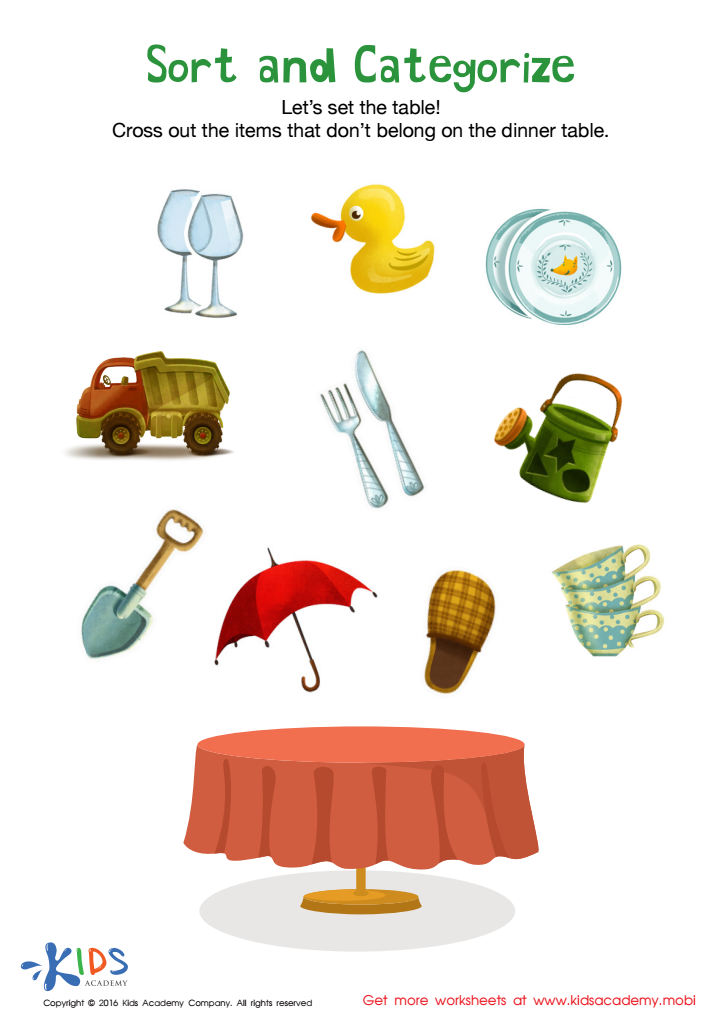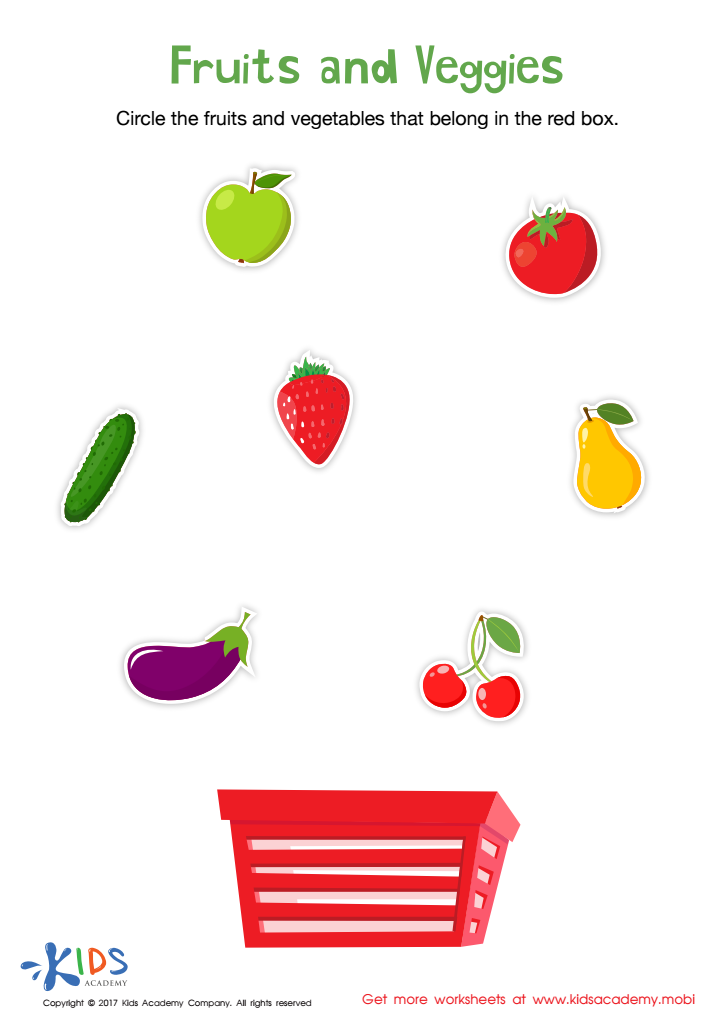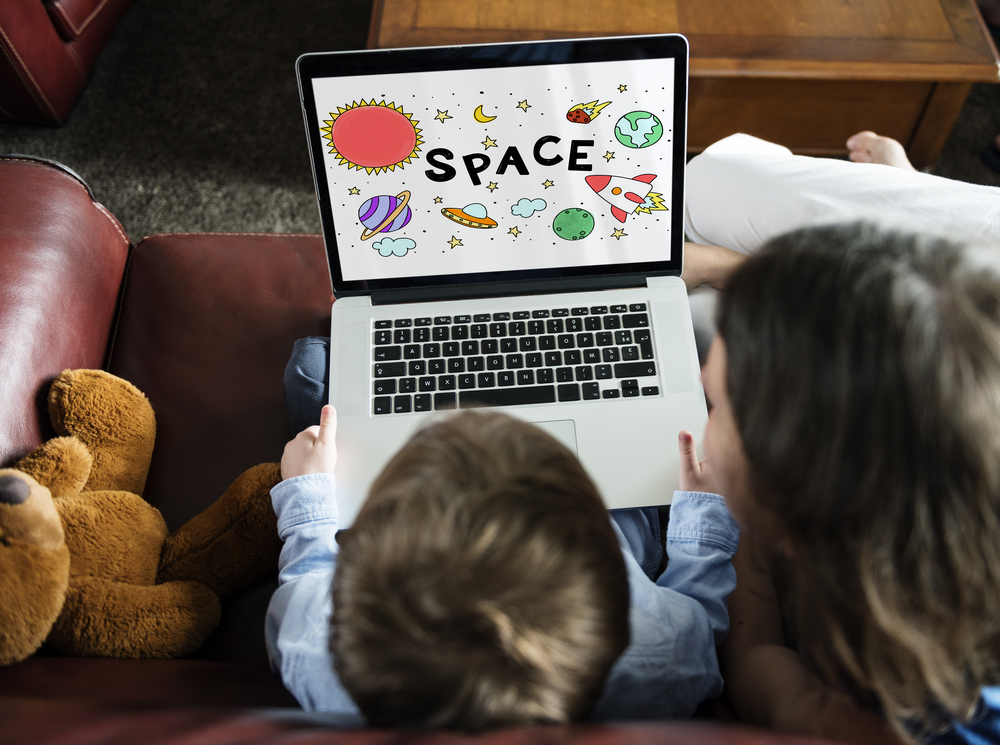Categorization skills Normal Matching Worksheets for Ages 4-8
6 filtered results
-
From - To
Enhance your child’s categorization skills with our engaging Normal Matching Worksheets, specifically designed for ages 4-8. These worksheets offer fun and interactive exercises that help young learners practice identifying similarities and differences among various objects, animals, and everyday items. By participating in these activities, children develop crucial cognitive skills, boost their problem-solving abilities, and sharpen their observational skills. Ideal for both home and classroom use, our printable resources provide a colorful and inviting way to make learning enjoyable. Support your child's early education journey with the captivating and educational experience of our categorization matching worksheets!
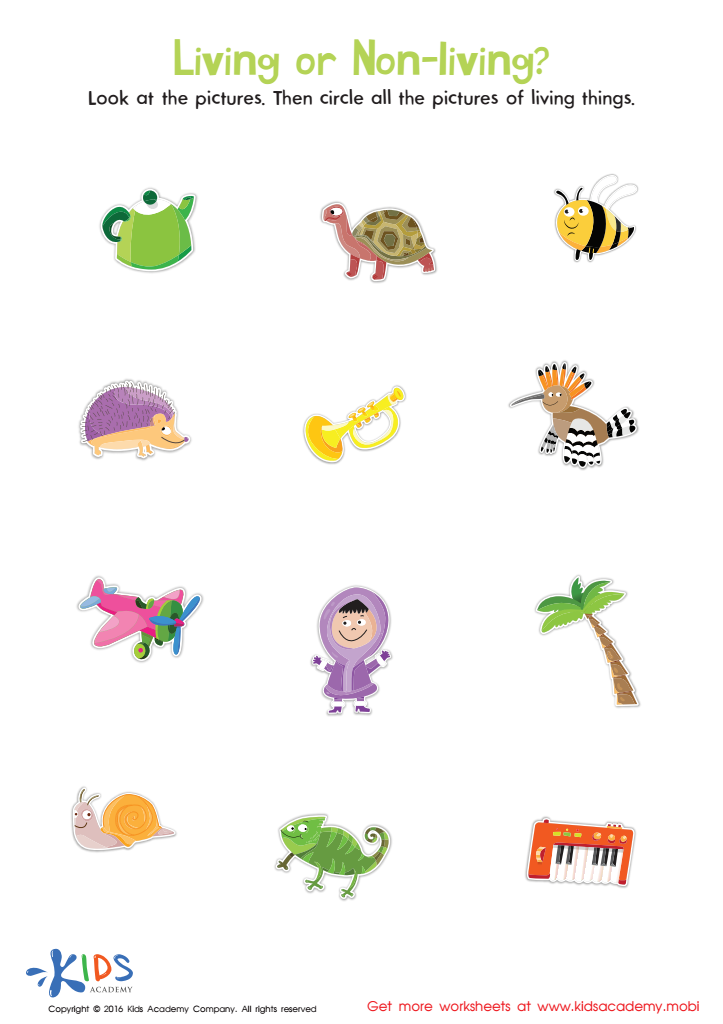

Identifying Living and Non–living Things Sorting Worksheet


Matching: Classifying Toys by Size Worksheet
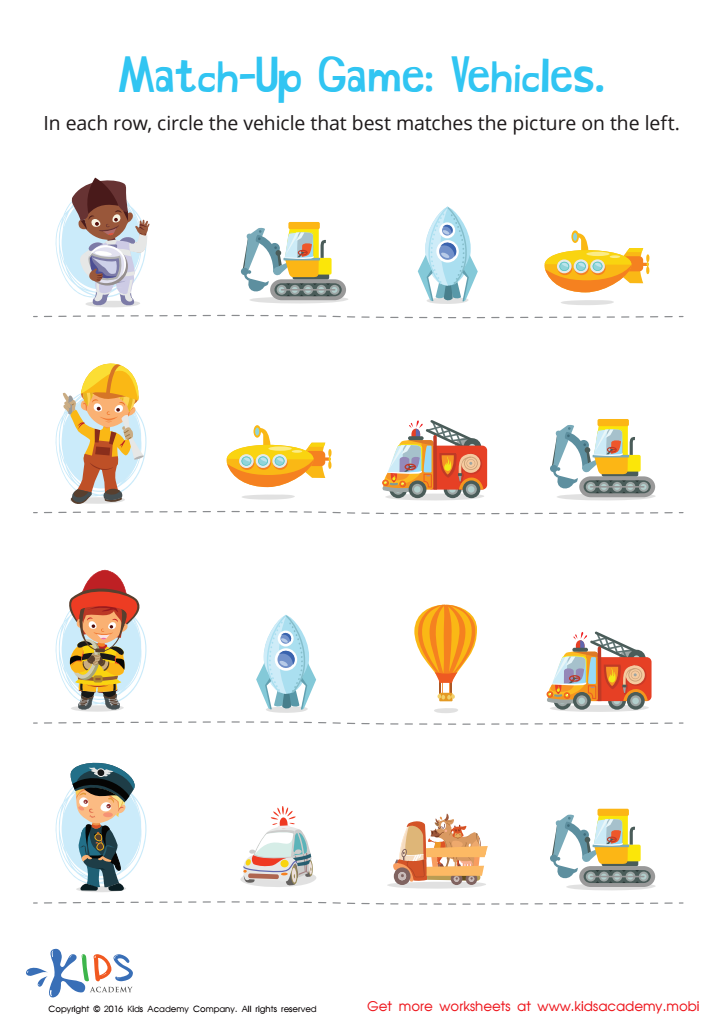

Vehicles Worksheet


Logic Game Sorting Worksheet
Categorization skills, particularly normal matching, are essential for children aged 4-8 as they play a crucial role in cognitive development and learning. During this age, children are actively trying to make sense of the world around them. By categorizing objects, ideas, and experiences, they develop critical thinking and problem-solving abilities.
Parents and teachers should care about these skills because they lay the foundation for more complex cognitive tasks. When children engage in normal matching activities—such as pairing similar objects or sorting items by color and shape—they enhance their ability to recognize similarities and differences, which is vital for language development and comprehension. These skills also contribute to early math abilities, as children learn to group and classify quantities.
Furthermore, strong categorization leads to improved organizational skills and helps children navigate social environments. Recognizing categories in social situations aids in understanding relationships and emotions, fostering empathy and cooperation.
Ultimately, developing categorization skills not only promotes academic success but also supports a child's overall growth and readiness for future learning challenges. Parents and teachers can facilitate this development through engaging, hands-on activities that encourage exploration and playful learning.
 Assign to My Students
Assign to My Students

